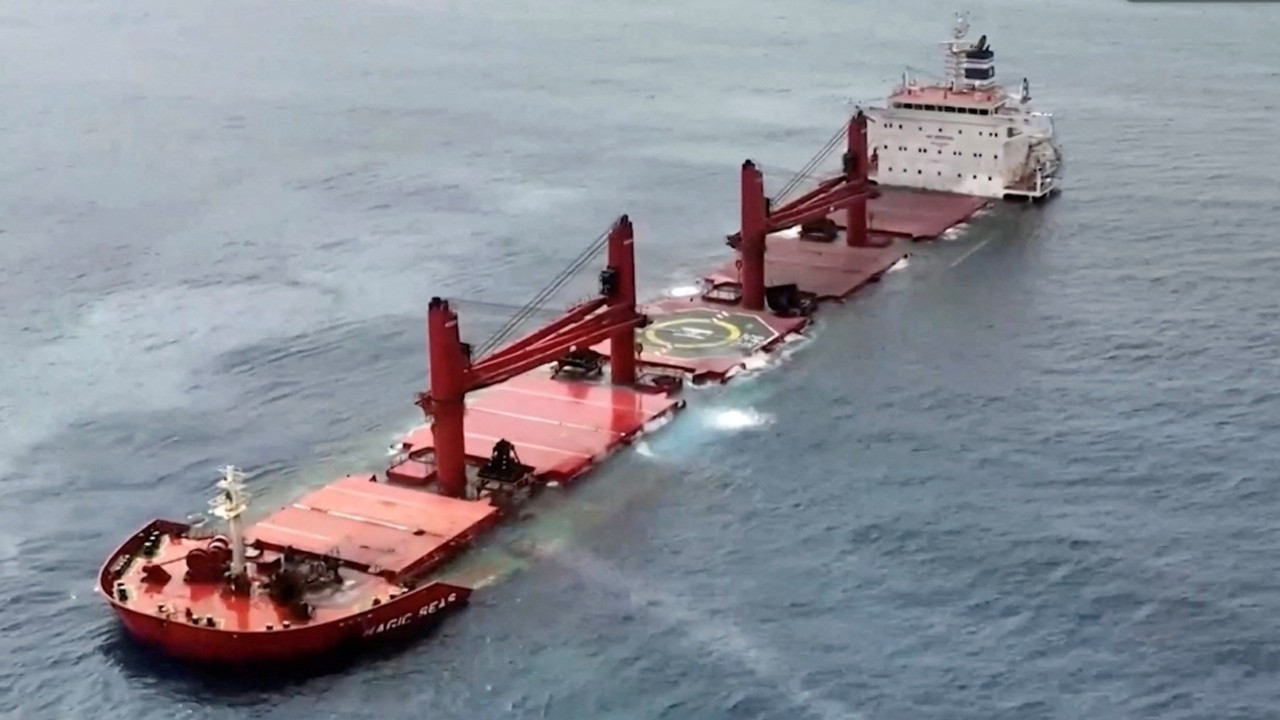Red Sea ship crews claim Muslim identity to avoid Houthi attacks

Web Desk
|
13 Jul 2025
Amid intensifying Houthi attacks on commercial vessels in the Red Sea, some ship crews have resorted to broadcasting messages over marine communication systems asserting that they are Muslims or Chinese nationals, and declaring no links to Israel, in a desperate effort to avoid being targeted.
This development comes as the Iran-aligned Houthi group has escalated its maritime campaign, which began in November 2023, turning the Red Sea into one of the world’s most perilous shipping corridors.
Vessels heading toward Israeli ports have increasingly come under attack, with several destroyed and their crews killed, injured, or missing.
Last week alone, two additional merchant ships were struck. One attack left four crew members dead, with others reported missing or wounded, while the second vessel was completely sunk, highlighting the growing scale of the crisis.
According to maritime security experts, the recent surge in emergency broadcasts declaring religious or national affiliations reflects a deep sense of fear and helplessness among ship crews.
However, analysts caution that such declarations are unlikely to deter the Houthis, who are believed to possess sophisticated intelligence capabilities and the ability to distinguish between ships regardless of radio messages.
“This isn’t a viable safety strategy—it’s a reflection of sheer desperation,” said a maritime security analyst. “The Houthis are making calculated attacks based on routes, cargo, and affiliations, not mere claims over radio.”
Read more: Houthis sink cargo ship in Red Sea bound for Israel, second attack in a week
The continued assaults have triggered a sharp spike in shipping insurance premiums for Red Sea routes, with some insurers suspending coverage altogether for high-risk zones, compounding the financial burden on global supply chains.
In response, the European Union has launched Operation Aspides, a naval mission aimed at bolstering maritime security in the Red Sea. The United States and allied nations have also stepped up patrols and intelligence-sharing efforts to contain the threat.
The Seafarers Charity, a global advocacy organization, has issued a strong statement urging governments to act. “Merchant sailors are providing essential services—transporting food, fuel, and medicine—and should not be forced to risk their lives,” the group said.
The Red Sea remains a strategic artery for international trade, linking the Mediterranean and the Indian Ocean via the Suez Canal.
Any disruption poses major risks to global supply chains and geopolitical stability.
As Houthi attacks continue unabated, maritime experts warn that long-term solutions must include diplomatic efforts, military deterrents, and protection guarantees for civilian seafarers caught in the crossfire of regional conflict.












Comments
0 comment